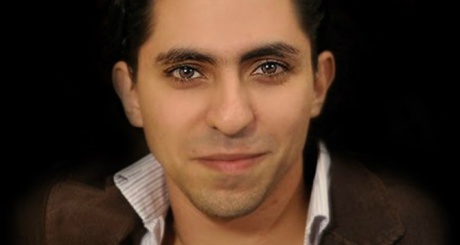U.N. Helpless as Saudi Flogging Violates Torture Convention

UNITED NATIONS, Jan 15 (IPS) - Flogging a dead horse, as the old idiom goes, is far removed from flogging a live Saudi blogger.
But the latest cruel punishment meted out by the rigidly conservative and authoritarian regime in Saudi Arabia has triggered widespread condemnation.3
The strongest criticism came Thursday from the U.N. High Commissioner for Human Rights, Zeid Ra'ad Al Hussein, a former permanent representative of Jordan to the United Nations, who said: "Flogging is, in my view, at the very least, a form of cruel and inhuman punishment.
"Such punishment," he said, "is prohibited under international human rights law, in particular the Convention against Torture, which Saudi Arabia has ratified."
The Saudi decision makes a mockery of the international convention, as do other violations, including torture of terrorist suspects by U.S. intelligence agencies.
But the United Nations remains helpless and is unable to hold these countries accountable for violations or punish them for infractions because member states reign supreme in the world body - except when penalised by the Security Council.
The Saudi punishment was meted out to Raif Badawi, who was publicly flogged 50 times last Friday and is reportedly due to be flogged every Friday, the holy Sabbath for Muslims, until his sentence of 1,000 lashes has been fully carried out.
Sevag Kechichian, Amnesty International's (AI) Saudi Arabia researcher on the case, told IPS, "Raif Badawi is a prisoner of conscience, and he was simply trying to uphold his right to freedom of expression and he is being punished for it in a horrifying manner.
"His flogging and 10-year sentence are testament to the extreme lengths to which the Saudi Arabian authorities will go in order to crush dissent."
Instead of announcing a second round of brutal floggings, the Saudi Arabian authorities must heed the international outcry over his case and order his immediate and unconditional release, he added.
Amnesty also noted that Saudi Arabia had condemned last week's attack on Charlie Hebdo in Paris as ‘cowardly'.
"The next day, they flogged Raif Badawi for exercising his right to free expression. We need to expose this hypocrisy. We need to embarrass them into action, now."
Adam Coogle, Middle East Researcher at Human Rights Watch, told IPS the statement by the Office of the U.N. High Commissioner for Human Rights (OHCHR) correctly labels the flogging punishment as torture and calls on Saudi Arabia to abolish the practice.
"We welcome OHCHR's press statement but call on him and the United Nations to continue to monitor and publicly criticise Saudi Arabia when they impose harsh and draconian punishments on peaceful activists and dissidents," he added.
In what was described as an "unusual diplomatic rebuke," the United States last week lashed out at Saudi Arabia, one of its closest allies in the Middle East, and urged the government to rescind its sentencing and review the case.
The United States strongly opposes laws, including apostasy laws, that restrict the exercise of freedom of expression and religion, and urges all countries to uphold these rights in practice, State Department spokesperson Jen Psaki, told reporters.
Javier El-Hage, general counsel of the Human Rights Foundation (HRF), told IPS the government of Saudi Arabia is making a mockery of that country's obligations under the U.N. Convention Against Torture and Other Cruel, Inhuman or Degrading Treatment or Punishment.
He said "the U.N. Committee against Torture should call on Saudi Arabia's government to immediately cease flogging Mr. Badawi, as that type of punishment constitutes a clear violation of Saudi Arabia's obligations under the Convention against Torture."
According to Article 20 of this Convention, he said, the U.N. Committee Against Torture has the power to carry out "ex officio investigations if it receives reliable information that appears to contain well-founded indications that torture is being systematically practiced in the territory of a State Party."
While they don't have the coercive power to force Saudi Arabia to stop the flogging, as is the case with most international law obligations, the committee can certainly report on the topic, condemn Saudi Arabia and issue recommendations, he noted.
In a statement released Thursday, Zeid appealed to the King of Saudi Arabia to exercise his power to halt the public flogging by pardoning Badawi, and also to urgently review this type of extraordinarily harsh penalty.
Badawi, an online blogger and activist, was convicted for exercising his right to freedom of opinion and expression on a website he founded called Free Saudi Liberals. He was sentenced to 10 years' imprisonment, 1,000 lashes and a fine of one million riyals (266,000 dollars).
Badawi's case was just one of a succession of prosecutions of civil society activists, said the statement.
On Monday, an appeals court upheld the conviction of Badawi's lawyer and brother-in-law Waleed Abu Al-Khair on charges that include offending the judiciary and founding an unlicensed organisation. Al-Khair's sentence was extended from 10 to 15 years on appeal.
The U.N. Committee against Torture has repeatedly voiced concerns about states' use of flogging and have called for its abolition.
Saudi Arabia's report on its implementation of the Convention is up for review by the Committee against Torture next year.
Edited by Kitty Stapp
The writer can be contacted at thalifdeen@aol.com
© Inter Press Service (2015) — All Rights Reserved. Original source: Inter Press Service
 Global Issues
Global Issues